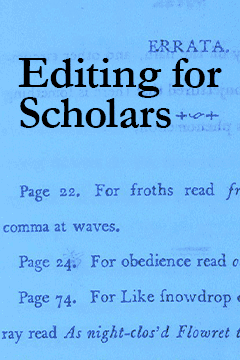What’s the Matter with Iowa?
What’s the Matter with Iowa?
Having gained “trifecta” control over the state’s government in November, Iowa Republicans are implementing a big-business agenda with astounding speed—and devastating implications for workers.

Since January, much of our political attention has been drawn to the dangerously dysfunctional first hundred days of the Trump presidency, whose major policy forays, notably around immigration and health care, have been marked by a frightening combination of flailing incompetence and blunt cruelty. But as Washington has become absorbed by Russia, tax returns, and Twitter tantrums, the right’s legislative agenda has unfolded at breakneck pace in the states. In November, Republicans won a trifecta (control of both houses and the governorship) in four more states, bring the total to twenty-four (Democrats control just six). And it’s here that the most damage is being done, as the blueprint used in Scott Walker’s Wisconsin and Sam Brownback’s Kansas is unrolled in Iowa, South Carolina, Kentucky, and New Hampshire.
Consider Iowa. In November, the Republicans gained two seats in the statehouse (increasing their majority to 59-41) and six seats in the state senate—flipping control from 25-23 Democratic to 29-20 Republican. In recent years, Republican aspirations and priorities in the state—the usual medley of tax cuts, privatization, and starvation of the public sector—have been clear enough, as has the role of the senate in blocking passage of the nastiest and craziest legislative proposals. But no one fully anticipated how quickly and dramatically the new trifecta would act. The battle in Wisconsin unfolded over months after Walker took office in 2011. In Iowa it was more like a bomb was dropped; three weeks into the legislative session, the damage was done.
The first blow was House File 291, a gutting of public-sector collective bargaining that was unveiled February 7 and signed by the governor ten days later. As in most states, Iowa’s public-sector bargaining law was a bipartisan bargain struck in the early 1970s, which raised pay and labor standards for public workers (especially teachers) in exchange for an effective no-strike pledge. The new public-employee relations code outdoes even Wisconsin in dismantling this bargain. Bargaining is now limited to “base wages,” with annual increases limited to 3 percent or the rate of inflation, whichever is lower. All other contract details—health care, pensions, working conditions—are off the table. Public-sector unions must win a recertification vote before each new contract (every two to three years). To twist that knife, the law requires the union to win a majority of workers in the bargaining unit (not just those voting) and it requires for the union to pay for the election. And unions are now barred from collecting dues through payroll deduction, a practice that was already voluntary.
Having landed a decisive blow against middle-class jobs and wages, legislators next took a jab at the state’s lowest-paid workers. Since raising its minimum wage to $7.25 in 2008 (just before the federal increase to that rate), Iowa has allowed labor standards to languish. In response, four Iowa counties raised local minimums, all pushing the rate over $10 by 2019. The merits of the local increases were clear: they effectively targeted poor working parents, raised the minimum closer to a basic living standard, and did so while posing little threat to employment. Enter House File 295, passed March 9 by the statehouse and on track to be approved by the senate. The bill preempts local action on minimum wages, paid family leave, and other conditions of employment. For good measure, it also strips cities and counties of the right to levy soda taxes or ban plastic bags. (Language aimed at protecting discriminatory landlords and blocking local civil-rights initiatives were dropped from the version passed.)
Other threats loom. The legislature is poised to gut the state’s workers’ compensation system by reducing benefits and shielding employers from penalties and legal costs. Public education is threatened by politically motivated attacks on teachers, deep cuts to funding, and a predictably dismal roster of vouchers, charters, and other private claims on public revenues. A House Study Bill on gun regulation would bring Iowa lifetime permits to carry, “stand your ground” provisions, preemption of local regulation, and armed toddlers.
If the pace and scope of this legislative putsch is jaw-dropping, so too is the absence of any plausible connection between the challenges faced by the state and the solutions offered. Low commodity prices have trimmed state revenues over the last year, but the fiscal pressures animating attacks on the public sector, labor standards, and public education are almost entirely manufactured. A sweeping cut to commercial property taxes in 2013 slashed over $300 million from this year’s revenues. Business tax credits cost the state another $275 million—a large chunk of which are refundable credits paid out to the state’s largest corporations (the state paid defense contractor Rockwell Collins over $12 million for doing business in Iowa last year).
But of course, not much of this was ever about Iowa. The legislative flurry of the last few weeks is entirely out of the playbook of the Koch-funded American Legislative Exchange Council (ALEC), of which Iowa Governor Terry Branstad was an early acolyte. Alongside Americans for Prosperity (AFP) and the State Policy Network, ALEC has been instrumental in pressing business-friendly model legislation in statehouses across the country. ALEC’s success has been most dramatic not just in “trifecta” GOP settings, but also in states—like Iowa—where part-time legislators are an easy mark for outside groups offering expertise and resources.
The ALEC/AFP fingerprints are not hard to discern. None of Iowa’s GOP legislators campaigned on this agenda. The ink was dry on the forty-two-page collective bargaining bill—a mash-up of longstanding ALEC language—before freshman legislators were given their codes to the copy machine. Public support for this and other measures (save a bit of astroturfing by AFP) was glaringly absent in charade of hearings that preceded their passage. And, tellingly, Governor Branstad put his pen to the collective bargaining bill not at a public event, but in a private ceremony for the benefit of the State’s AFP lobbyist.
In What’s the Matter With Kansas (2004), Thomas Frank portrayed the rise of the new right as an elaborate and malevolent bait-and-switch: working-class Kansans were mobilized to vote for the GOP on social issues (abortion, school prayer), then screwed by economic policy. That is not what’s going on here. The ALEC agenda has little popular support in Iowa, and virtually no natural constituency. There is little appetite for school choice and vouchers. The collective-bargaining bill erodes the quality and security of some of the only good jobs in many counties. Iowa’s effective business tax rate is already lower than its peers, and a generation of scholarship on business incentives has made it pretty clear that prospective investors prefer a well-educated workforce and decent local infrastructure to the credits or abatements now offered by almost all jurisdictions. And the biggest beneficiaries of the ALEC agenda—extractive industries and the very rich—are hard to find in the cornfields between the Mississippi and the Missouri Rivers.
In turn, the intellectual and ideological underpinning is inconsistent and cynical. Since the 1970s, the right has promised to dismantle “big government” and return power to states and localities. This impulse was rooted in the “states’ rights” logic of opposition to civil rights, and blossomed as a strategy of paring back federal commitments and rolling austerity downhill. The Republican floor manager of the collective bargaining bill promised his senate colleagues that the law would restore control to local elected officials that had been lost when the public bargaining statute was crafted in the 1970s. This is hard to square with the mania for preemption, in Iowa and elsewhere, which effectively strips local governments of that control and discretion. The common ground, of course, is not ideology but naked self-interest. ALEC and its backers care little where decisions are made, as long as government is shackled and business is freed.
In this sense, ALEC is accelerating the “risk shift” brought about by the growth of precarious employment and the fraying of the social safety net. The assault on workers’ compensation in Iowa, for example, is animated not by “out of control” claims and costs but by a desire to further shift the burden from employers onto the backs of injured workers and taxpayers, as uncompensated claims end up on the balance sheets of Social Security Disability Insurance, Medicare, and Medicaid. The prohibition on bargaining over health care, in turn, is widely regarded as the first step in the state’s retreat from offering any meaningful health coverage via public employment.
The final, and perhaps decisive, motive for Iowa Republicans is starkly political. The peculiar enmity for public-sector workers and their unions is less about fiscal constraint than it is about their critical role in the Democratic Party. The state’s largest public-sector unions (AFSCME and ISEA, the teachers’ union) contributed nearly $1 million to Democrats in the 2016 cycle. The collective-bargaining law (especially the dues and recertification provisions) is simply meant to turn off that faucet. This is what has played out in Wisconsin, where public sector unions have lost almost half their members (from 175,000 in 2010 to 91,000 in 2016): AFSCME has retreated to a single statewide council, and political contributions—and energies—have withered. The icing on this cake, unsurprisingly, is a new voter-ID law whose burden would fall largely on Democratic supporters.
Some in the statehouse may genuinely believe that this path makes sense for Iowa, but the evidence suggests otherwise. This is a frighteningly destructive agenda, virtually guaranteed—as we have seen play out in Kansas and in Wisconsin—to undermine the prosperity, security, and mobility of most Iowans. State Republicans and ALEC know this, which is why they’ve made sure to pair their economic agenda with measures designed to defang and defund their political opponents. The warm epigram from Field of Dreams—“It’s not heaven, it’s Iowa”—now sounds like a cruel joke.
Colin Gordon is a professor of history at the University of Iowa. He writes widely on the history of American public policy and is the author, most recently, of Growing Apart: A Political History of American Inequality.




